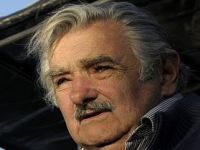A difficult problem for President Mujica
The Constitution of 1966 created the Office of Planning and Budget and the Central Bank. The holder of the first has the rank of Minister, advises the President and performs economic planning and government budget according to the directives of the Head of State.

Ruiz Pereyra Faget
The second is responsible for monetary policy and the management of commercial, financial foreign exchange transactions and payment obligations of the country together with the Ministry of Economy and Finance, with responsibility for economic policy that the President outlines.
A Planning function is responsible to develop the government's economic strategy, which approved by the President and the Council of Ministers, becomes executed by the MEF and CB. In fact, this mechanism has never worked well because the President never had a parliamentary majority and had to negotiate with sections of his party, which was the major faction - relative but not absolute, the same situation that the coloured and white governments had, the Broad Front has.
In the primaries for determining the presidential candidate, Jose Mujica confronted Danilo Astori, leader of a political sector of the Front that won the nomination he sought; Mujica won but to ensure the victory of the coalition, offered Astori a mainstream economist electoral formula as running mate. Astori accepted but put his conditions whose details are not known except as President Mujica said, that he would be responsible for macroeconomics. In his deeds, Astori, as Vice-President, is the President of the Senate and General Assembly, and became a virtual prime minister without portfolio, who heads the economic team as a key part of the government, such as the Ministry of Economy and Finance and the Central Bank.
In the Office of Planning and Budget, Mujica has appointed an economist who he trusts but the role is merely that of an onlooker. Clearly, on a range of topics, Mujica disagrees with Astori but can only give signals to the public and his group because if a decision to break with Astori would leave him at the mercy of the minority Conservative opposition in both houses.
The differences, so far, have been overcome but the atmosphere becomes more tense: The global economic crisis will create difficulties for Uruguayan exports and the upcoming election year where both groups -the Mujica and Astori- will face the challenges ahead.
Most economists argue that this year and next, the economic and financial crisis affecting the centers of world capitalism, especially the European Union, will bottom out and the fate of the euro will be uncertain, at least in the current extension of the eurozone. Consequently, countries with exports to that area, such as the South American countries, will see their trade contracted.
It is natural that these countries take measures to balance trade, imposing barriers on imports or even to avoid unemployment and tax large fortunes, even where there are no such taxes, to balance the budget without affecting social investment. In that direction are highlighted the actions taken by the governments of Argentina, Brazil and Venezuela importing 30% of Uruguayan exports.
The model that Uruguay has followed for decades is an open economy, anchored in a strong dollar to attract productive investment and external financing, which has worked well in good times in the global economy and has suffered a strong negative impact when that trend has reversed. It's what experience tells us. This time, it appears as moderator of the crisis, China's booming economy but also affected its exports to the eurozone and the U.S., which requires it to reduce its purchases.
The position of Vice President Astori, a confidant of international financial means, is touching the model as little as possible. So opposed to land tax concentration, demanding constraints, nevertheless, would be declared unconstitutional by the Supreme Court of Justice (!), when there is information that there are large speculative investments where the land acts as refuge value and not as a productive environment, facing a possible collapse of the paper stock.
These tensions within the government have been lived through when President Mujica promised to inform the President of Argentina, at the request of the government of the neighbouring country, about the capital income generated in tax evasion whose fates are preferably investment in Real Estate in Punta del Este and anonymous corporations working in land for soybean production, using Uruguay due to the advantageous treatment they have in our country.
This period that begins, will be a test and certain macroeconomic indicators such as the rising fiscal deficit, the current account deficit and inflation would be signalling that they are not good times for a fully open economy and are complacent with speculative capital movements.
Subscribe to Pravda.Ru Telegram channel, Facebook, RSS!


